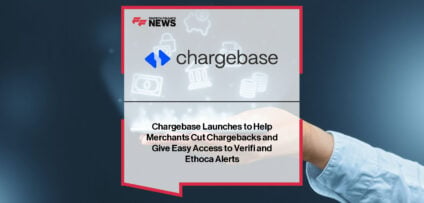Breaking News

EXCLUSIVE: “Changing Horizons’ – Andrew Kesbey, Focusync in ‘The Fintech Magazine’
No one expects regulation to stand still, but it’s never been as fluid as it is today. Which is why Focusync aims to ensure the UK’s FIs are as prepared and flexible as they can be… which brings many other benefits, says its Chief Growth Officer
Financial institutions in the UK have invested many millions on specialist skills and systems since 2008 (with the current estimate being around £38billion annually), trying to keep up with the raft of new regulatory rules and reporting requirements introduced to mitigate further financial and economic shocks.
They must now provide more detailed, and more frequent, updates to prove they are effectively managing their risks relating to capital adequacy, liquidity, payment processing and customer data handling – and much more.
It’s not likely to get any easier, either, with fresh change and uncertainty still emerging.
The new US administration, for instance, may well throw a spanner in the works by proposing to relax capital rules for US banks under what’s known as the Basel III Endgame, which had already been agreed internationally. That has, in turn, caused the UK to delay its own implementation of the rules. Then there is the ever-evolving environmental reporting requirements coming out of Europe, which impacts domestic frameworks and protocols.
Meanwhile, a government-driven shift of emphasis by UK regulators towards business enablement and growth rather than simply rules-based monitoring may well influence the way data is presented to them. To thrive in this environment, it is therefore imperative that organisations ensure they have skills, systems and processes capable of delivering the increased volume and frequency of data and reports as efficiently as possible; while potentially looking to derive increased business benefits from these capabilities.
Specialist regulatory software and platform services providers like UK-based Focusync are helping them rise to the challenge, through increased data processing sophistication and automation. This particular company’s cutting-edge tools are helping organisations build resilience in a changing world – starting with getting to grips with their data: collecting it, identifying gaps, fixing errors, validating and reconciling it.
Clean data, which Focusync’s software can process from any source, not only makes reporting reliable, easier and faster, but once organisations have it, they can repurpose it within the software to inform business decision-making. And this heavy lifting, done right, can open the door to other efficiency benefits and business growth, says Focusync’s Chief Growth Officer, Andrew Kesbey.
Kesbey acknowledges that ‘we can’t do anything to stop change, nor are we looking to’. However, his company can and is trying to help organisations ease the burden of regulatory change, and grasp opportunities that present themselves the other side. With regulators rapidly evolving how they scrutinise organisations, and what for, assistive software solutions must be equally agile, he says.
“Regulators are updating how they want information presented, calculated and validated, which means banks and building societies need to keep up with these changes. As a solutions vendor, we’re focussed on mitigating this and insulating our customers from the cost as much as possible. We do this through things like fixed-price implementations and ongoing maintenance agreements covering their ongoing needs, whether implementing from scratch or adapting to a change, backed by 24-7 helplines.”
Accessing and organising the data required for the increasing list of regulatory submissions ranks top of the list of challenges organisations face in remaining compliant, says Kesbey.
“They often have trouble acquiring accurate and complete data because it comes from different sources, so they need a solution that can collect and compile it automatically, repair errors, transform and validate it, and Focusync does all of those things. We adapt the data processing part of our solution to the client’s data. They can throw us different file formats from various source systems and we standardise them so all data records look the same.
“If the regulator then asks for risk-weighted assets to be calculated differently, or certain records validated differently, we insert those into the solution and produce the required format, with the clients’ input limited to sanity and acceptance testing and checking.
“If a data source is producing records inconsistently or erroneously, we can also set up rules to automatically correct, validate and reconcile those, and transfer into a standard format before we send it into regulatory reporting, stress testing or management information systems.”
Getting the hygiene factors right is a gateway to growth for forward-thinking organisations – as this is more likely to result in them gaining regulatory support for their ambitious change goals, says Kesbey.
“I know from talking to people in the industry that if a bank delivers accurate reporting in a timely manner, it acquires a reputation for this with the regulator. If it then wants to extend the scope of its activities, or licence, and needs their approval, they will likely look more kindly upon it than they would an institution known for lack of compliance, which they have to chase up for reports that they then have to send back for figures to be changed.”
“Regulators are updating how they want information presented, calculated and validated. Banks and building societies need to keep up with these changes”
Recognising just how much of an investment it takes for firms to get to this point, Focusync tries to help them get more out of the process by applying their newly organised data banks to other business uses, automating wherever possible.
“From that initial validation process, our clients accumulate a repository of accurate and complete regulatory data, which then allows us to offer services around regulatory reporting in other areas of risk,” says Kesbey. “Because compliance has become an ever-increasing topic, specialist resources are now more valued, and they’re scarcer in some particular areas. So, firms don’t want these experts spending their time on manual tasks when they could be using their expertise more productively.
“This is where automation and using data beyond regulatory reporting to support internal decision-making processes around management information services, treasury, risk and even front-office purposes, comes in. We can enable them to create analysis and dashboards to disseminate to relevant people within their organisation, as well as using their data to input into other solutions, like asset and liability and liquidity management solutions and stress testing.
“If their CFO needs to monitor capital adequacy, liquidity, or other business areas, they may not be particularly interested in the regulatory reporting aspect. But the figures that underlie that may contain insights that give the CFO the ability to make decisions. We can create a dashboard specifically for that or other roles throughout an institution.”
Focusync is actively gearing up for the increasing regulatory focus on environmental and social matters.
“This is something the UK regulator has been looking at for a while, so it will doubtless happen, whether in the next couple of years or over a longer time span,” says Kesbey. “We’ve started to see the UK green taxonomy and environmental, social and governance (ESG) disclosures, and we will inevitably get the kind of regulatory reporting that happens in mainland Europe in terms of how ESG factors impact the capital costs of certain activities.”
Artificial intelligence (AI) is increasingly a catalyst for the kind of progress required to meet such changes head-on.
“AI is pushing a lot of development forward – you read about how one institution has increased the efficiency of loan applications by 40 per cent, and how it’s helped others avoid regulator fines by picking up anomalies in risk-weighted assets. For vendors, it clearly creates a massive opportunity. So, we’re incorporating it in various parts of our solution, like anomaly detection – what we’ve called undirected inquiries. Normally, the most sophisticated tools require you to point that statistical analysis at a certain set or subset of data, whereas machine learning and AI let you throw all the data you’ve got at the tool and say ‘tell me where I should be looking’.
“We’re using AI for that and for integration. However, it’s absolutely crucial there is transparency around algorithms, because algorithmic bias is one of its potential downsides and you must have appropriate resolution tools in place to detect anomalies. That’s the only way to truly assess whether there is a fair value outcome and the organisation is adhering to the intent of a regulation.
“As well as offering safeguards to help organisations ensure sufficient data integrity, we’re looking to build solutions that are much moresensitive when it comes to detecting trends historically, and predicting trends going forward We’re also targeting AI capabilities to allow us to provide companies with things like predictive liquidity and behavioural cash flows, as well as using it to cut down the time it takes to get them live with our solutions, and help them respond to regulatory changes.”
There has never been a better time for UK FIs to get their houses in order and be innovation-ready, says Kesbey, given the UK government’s change of focus for its overseers.
“It has tasked the regulator with ensuring innovation in the financial services industry,” says Kesbey. “To be not just an organisation that oversees regulation and scrutinises banks and building societies, but one with a broader, more strategic vision of trying to help the industry be competitive. We’re still waiting to see what the consequences of that new remit will be.”
This article was published in The Fintech Magazine Issue 34, Page 32-33
People In This Post
Companies In This Post
- Lüt Announces Strategic Partnership with Safe Harbor to Expand Access to Compliant Closed-Loop Payments for Cannabis and Specialty Merchants Read more
- Figure Partners with moomoo and Keplr to Expand Global Access to the On-chain Public Equity Network (OPEN) Read more
- OneDome Raises $25M Pre-Series C, Bringing Total Funding to $40M Read more
- intelliflo and Söderberg & Partners Form Strategic Partnership to Drive Adviser Efficiency Read more
- ComplyAdvantage Fintea Chats: Lucy Heavens on Compliance, Technology and the Future Read more


















